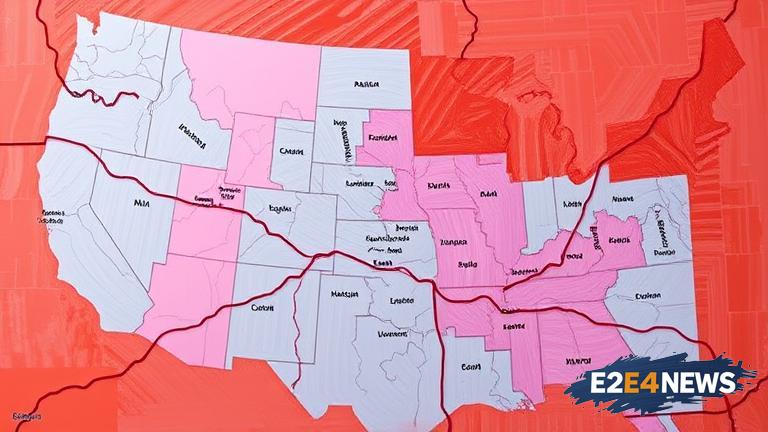In a landmark decision, a federal judge has struck down Utah’s congressional map, deeming it unconstitutional due to gerrymandering. The ruling, which was handed down on Monday, has significant implications for the state’s electoral landscape. The judge found that the map, which was drawn by the Republican-controlled state legislature, unfairly favored the party and diluted the voting power of Democrats. The decision is a major victory for voting rights advocates, who have long argued that the map was designed to entrench Republican power in the state. The ruling is also likely to have national implications, as it could set a precedent for similar challenges to gerrymandered maps in other states. The judge’s decision was based on a thorough analysis of the map and its effects on the state’s electoral system. The court found that the map was designed to pack Democratic voters into a single district, while spreading Republican voters across multiple districts. This tactic, known as gerrymandering, is widely seen as a way to manipulate electoral outcomes and entrench partisan power. The ruling is a significant blow to Republican lawmakers in Utah, who had argued that the map was fair and constitutional. However, the judge disagreed, finding that the map was the result of a deliberate effort to disadvantage Democratic voters. The decision is likely to be appealed, but for now, it stands as a major victory for voting rights advocates. The ruling has also sparked a wider debate about the role of gerrymandering in American politics. Many argue that gerrymandering is a major contributor to the polarization and gridlock that has come to characterize modern politics. By allowing politicians to choose their voters, rather than the other way around, gerrymandering can create safe seats and reduce the incentive for lawmakers to work across the aisle. The decision in Utah is a significant step towards addressing this problem, but it is only one part of a larger effort to reform the electoral system. In addition to the ruling in Utah, there are several other high-profile challenges to gerrymandered maps making their way through the courts. These cases have the potential to significantly reshape the electoral landscape and promote more competitive and representative elections. The issue of gerrymandering is also being taken up by lawmakers, with several bills aimed at reducing the practice currently making their way through Congress. While these efforts are promising, they face significant opposition from lawmakers who benefit from the current system. Despite these challenges, the ruling in Utah is a significant step forward for voting rights advocates and a reminder that the courts can play a crucial role in protecting the integrity of the electoral system. The decision is also a testament to the power of grassroots activism, as it was the result of a lawsuit brought by a group of Utah voters who were concerned about the fairness of the state’s electoral system. The ruling has sparked widespread celebration among Democrats and voting rights advocates, who see it as a major victory in the fight against gerrymandering. However, Republicans have been quick to criticize the decision, arguing that it is an overreach by the courts and an attempt to interfere with the state’s electoral system. The debate over gerrymandering is likely to continue in the coming months and years, with the ruling in Utah serving as a significant milestone in the ongoing effort to promote fair and representative elections. The decision has also highlighted the importance of an independent judiciary in protecting the rights of voters and ensuring the integrity of the electoral system. As the case makes its way through the appeals process, it is likely to remain a major topic of discussion and debate in the world of politics. The ruling has significant implications for the future of elections in Utah and beyond, and its impact will be closely watched by lawmakers, activists, and voters across the country. The decision is a reminder that the fight against gerrymandering is ongoing and that there is still much work to be done to promote fair and representative elections. However, it is also a testament to the power of the courts and the importance of protecting the rights of voters. The ruling in Utah is a significant step forward in the effort to promote electoral reform and ensure that the voices of all voters are heard. The decision has sparked widespread interest and debate, with many seeing it as a major victory for democracy and a significant blow to the practice of gerrymandering. The ruling is likely to have far-reaching implications, both in Utah and beyond, and its impact will be closely watched in the coming months and years.
